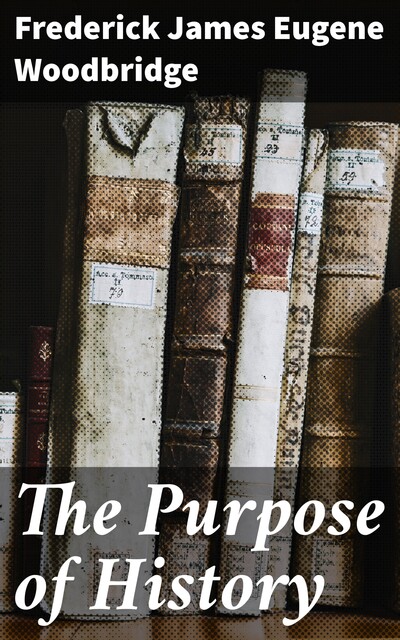Мы используем файлы куки, чтобы Bookmate и наши рекомендации работали лучше.
Подробнее на странице Политика Cookies
Подробнее на странице Политика Cookies
Принять все Cookies
Выбрать cookies
Frederick James Eugene Woodbridge
The Purpose of History
In “The Purpose of History,” Frederick James Eugene Woodbridge embarks on a profound philosophical inquiry into the meaning and implications of historical study. Woodbridge's articulate prose and analytical rigor navigate through the complex interplay between historical events and larger existential questions, proposing that history serves not merely as a record but as a continuous dialogue about human purpose and values. This book situates itself within the broader intellectual currents of early 20th-century thought, engaging with contemporaneous philosophers and historians while also drawing upon classical and modern historiographical debates, thereby enriching our understanding of purpose in history. Frederick James Eugene Woodbridge was a prominent figure in American philosophy and a key proponent of idealism, which heavily influenced his views on history. His academic background, imbued with robust neo-Hegelian thought, shaped his perspective that history is laden with meaning rather than being a mere chronological account of events. Woodbridge's tenure at Columbia University and his interactions with leading thinkers of his time reflect an intellectual milieu that grappled with both the significance of historical narratives and the philosophical underpinnings of human experience. Highly recommended for both students and scholars, “The Purpose of History” challenges readers to reconsider the role of history as a discipline and its relevance to contemporary life. By engaging critically with enduring questions of meaning, Woodbridge's work is invaluable for anyone interested in the intersection of philosophy and history, serving as a catalyst for deeper thought and understanding in the field.
больше
71 бумажная страница
- Правообладатель
- Bookwire
- Дата публикации оригинала
- 2019
- Год выхода издания
- 2019
- Издательство
- Good Press
Уже прочитали? Что скажете?
👍👎
fb2epub
Перетащите файлы сюда,
не более 5 за один раз


